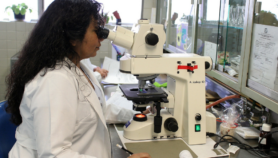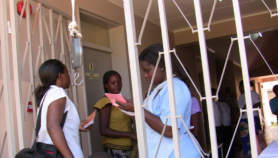By: Imelda V. Abaño
Send to a friend
The details you provide on this page will not be used to send unsolicited email, and will not be sold to a 3rd party. See privacy policy.
[BALI] The UN has announced approval for an adaptation fund to bolster the defences of poor countries that lack the money, technology and human resources to cope with climate change.
The announcement was made at the UN climate meeting in Bali, Indonesia this week (11 December).
"Developing countries should benefit from the adaptation fund," said Yvo de Boer, executive secretary of the UN’s Framework Convention on Climate Change (UNFCCC).
"Perhaps in as little as a year, real resources for adaptation can begin to flow to developing countries and the UNFCCC is willing to assist developing countries prepare their national adaptation strategies," de Boer added.
According to de Boer, the fund is intended to finance climate change projects including sea walls to guard against expanding oceans, early warning systems for extreme events, improved water supplies for drought areas, training in new agricultural techniques and the conservation and restoration of mangroves to protect people from storms.
The fund is to be initially administered by the Global Environment Facility, which donor governments established 16 years ago to fund conservation projects. The World Bank is to act as its trustee, and a 16-member board, drawn from rich and poor nations from the Conference of Parties to the Kyoto Protocol, will oversee it.
Funding will come from a two per cent levy on revenues generated by the clean development mechanism, the scheme allowing industrialised nations to pay for carbon credits produced by emission-reduction projects in the developing world and credit them against their own emissions targets.
The decision about the adaption fund is the first significant agreement to emerge from the talks, which aim to establish a ‘road map’ to lay the groundwork for an expected two years of talks to draft a replacement for the Kyoto Protocol, which expires in 2012.
"This is big progress here in Bali as we have been debating for [the adaptation fund’s] approval for years," the environment minister and lead climate change negotiator of the Philippines, Jose Atienza, told SciDev.Net.
Manuel Gerochi, a member of the negotiating team from the Philippines, says they had successfully lobbied for the adaptation fund to be overseen by Kyoto signatories, making it easier for developing countries to get funding for adaptation projects in their respective countries.
According to the Reuters news agency, the plan now needs to be approved by environment ministers before the end of the Bali meeting.













